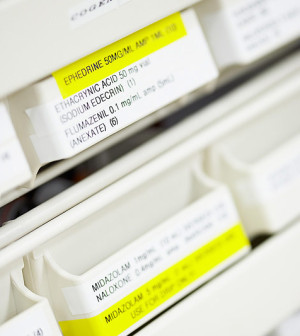- Could Your Grocery Store Meat Be Causing Recurring UTIs?
- Are You Making This Expensive Thermostat Error This Winter?
- Recognizing the Signs of Hypothyroidism
- 10 Strategies to Overcome Insomnia
- Could Artificial Sweeteners Be Aging the Brain Faster?
- Techniques for Soothing Your Nervous System
- Does the Water in Your House Smell Funny? Here’s Why
- Can a Daily Dose of Apple Cider Vinegar Actually Aid Weight Loss?
- 6 Health Beverages That Can Actually Spike Your Blood Sugar
- Treatment Options for Social Anxiety Disorder
First Drug Approved for Duchenne Muscular Dystrophy

Exondys 51 (eteplirsen) injection has been approved by the U.S. Food and Drug Administration for certain people with Duchenne muscular dystrophy (DMD).
It’s the first drug to gain FDA approval for the condition.
Exondys 51 is approved for people with a specific mutation of the dystrophin gene, affecting some 13 percent of people with the disorder.
DMD, the most common form of muscular dystrophy, is a rare genetic condition that leads to ongoing muscular deterioration and weakness. Symptoms typically first appear between ages three and five, mostly among boys without a family history of the disorder, the FDA said Monday in a news release.
People with DMD typically die in their 20s or 30s from the progressive disorder, which affects about one of every 3,600 males worldwide.
Accelerated approval was granted to the new drug based on clinical studies that found an increase in the dystrophin protein among some people treated with Exondys 51. While no clinical benefit was found, approval was granted based on the disorder’s potential risks, its life-threatening nature and the lack of any other available therapy, the FDA said.
The drug’s maker, Sarepta Therapeutics, is required to conduct additional studies to assess whether the drug improves motor function or provides any other clinical benefit, the agency said. The FDA added that in the case of negative results from the ongoing studies, it reserves the right to “initiate proceedings to withdraw approval of the drug.”
The drug’s most common side effects include balance disorder and vomiting.
Sarepta is based in Cambridge, Mass.
More information
Visit the FDA to learn more.
Source: HealthDay
Copyright © 2026 HealthDay. All rights reserved.










